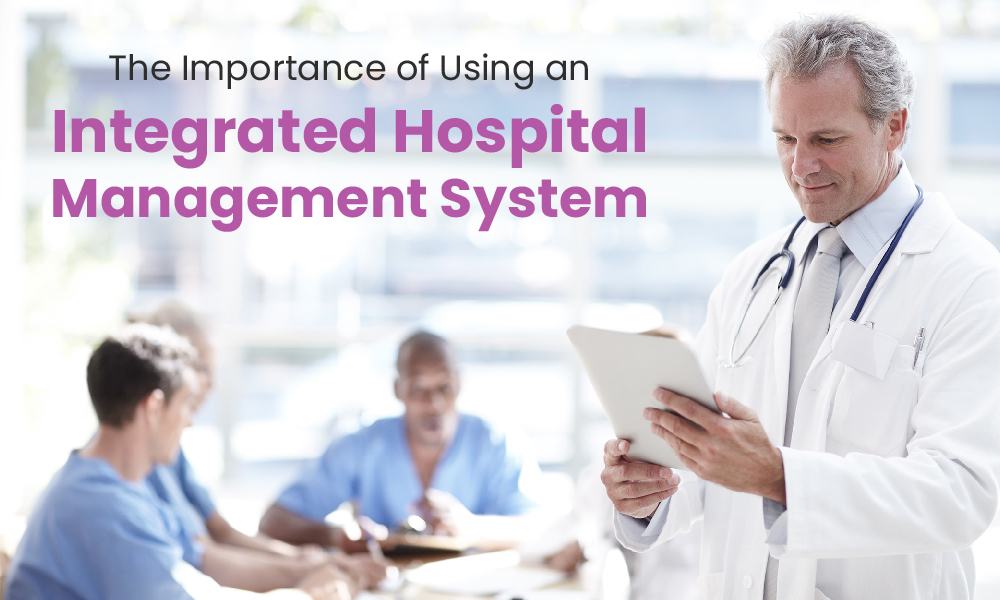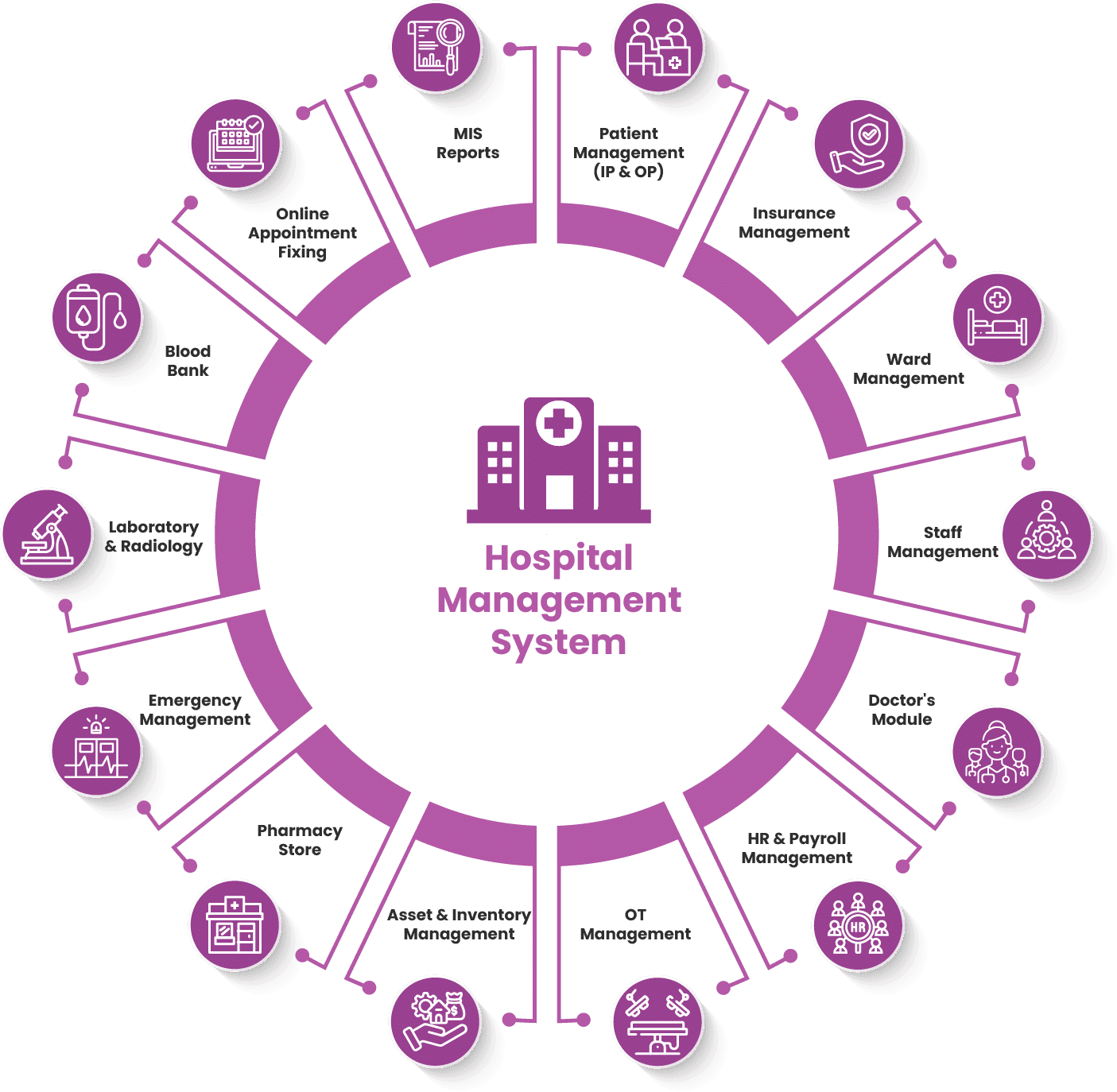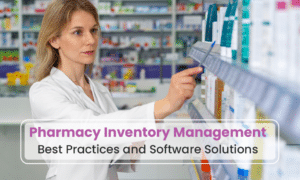
Hospitals operate with numerous departments that perform various daily activities, necessitating effective communication and information sharing among them, now it is essential to know the importance of hospital management system. Managing disparate systems like appointment scheduling, telemedicine, diagnostics, electronic health records (EHR), and billing software poses challenges in generating unified reports. This often requires a large team to maintain and coordinate these systems. However, an integrated hospital management system offers a solution by consolidating these diverse systems into a single interface. This system not only stores information but also facilitates seamless communication and data sharing among departments such as laboratories, clinics, and pharmacies.
Interoperability is key in hospitals, where patients interact with multiple departments on average. By digitizing interoperability through an integrated hospital management system, hospitals can achieve efficiency in their operations, benefiting both patients and healthcare providers. Here’s how this integration improves patient care and hospital operations.
Importance of Hospital Management System: A Closer Look at Integrated Hospital Management Systems
An integrated hospital management system represents a comprehensive software solution engineered to optimize and automate the administrative, clinical, and financial workflows within a healthcare facility. It acts as a unified platform that amalgamates various operational domains, such as patient registration, appointment scheduling, medical records management, billing, inventory control, pharmacy operations, and more. By consolidating these diverse functionalities into a single framework, an integrated HMS facilitates swift access to essential information, informed decision-making, and the delivery of superior patient care.
Read more about Hospital management software: All About Efficient Hospital Management System (HMS) | Ezovion
The Critical Need of Understanding the Importance of Hospital Management System
Integrating every department of the hospital brings forth a multitude of benefits, particularly in easing the workload for doctors and other hospital staff. With all departments seamlessly interconnected, physicians and healthcare workers can access essential patient information swiftly and efficiently, streamlining their workflow and enhancing overall productivity.
Highlighted below are several notable advantages:
Embrace Unified Efficiency, Say Goodbye to Silos:
An integrated HMS eradicates manual data handling and redundant procedures, enhances administrative efficiency, minimizes errors, and bolsters overall productivity through automation, integration cost, and workflow standardization.
Better Collaboration and Communication:
HIMS facilitates real-time communication and collaboration among healthcare professionals, enabling seamless sharing of patient data, care coordination, and efficient appointment management, which collectively contribute to superior patient outcomes.
Digital sharing of information:
Hospital Information Management Systems (HIMS) make patient care better by putting all important medical information in one place and making admin tasks easier. With HIMS, doctors and nurses can quickly find patient records, like medical history, test results, and treatment plans, without having to dig through paper files.
HIMS also lets patients book their appointments online, which makes things easier for both the hospital staff and the patients. This system helps patients have more say in their healthcare and makes the whole process smoother for everyone involved.
Informed Strategic Decisions:
Integrated Hospital Management Systems (HMS) provide comprehensive solutions for hospitals, offering features like analytical dashboards that allow management to generate performance reports on a weekly, monthly, or yearly basis. By centralizing data from various departments, the system eliminates the need for manual data collection and enables quick access to key metrics.
This analytical approach empowers hospital administrators with valuable insights into operational practices, patient care outcomes, and financial performance. With detailed reports and analytics at their fingertips, administrators can make informed decisions, optimize resources, and drive continuous improvement initiatives effectively.
Cost-efficiency:
Software solutions come with various pricing models, some of which may be more budget-friendly than others. For instance, subscription-based models may charge a percentage of your revenue based on patient volume, while other software may have different pricing structures that could potentially be more expensive.
However, utilizing a single integrated software solution across all departments allows for a standardized pricing model. This provides the advantage of predictable costs, enabling better budget forecasting and ensuring that expenses remain within budgetary constraints.
Enhancing the Delivery of Patient Care
At its core, the implementation of an integrated hospital management system is aimed at advancing the quality of patient care through streamlined and cohesive service delivery. Here’s how it accomplishes this aim:
- Comprehensive Patient Records: The system maintains detailed electronic health records (EHRs) for each patient, encompassing medical history, diagnostic results, prescribed medications, and treatment protocols. Access to this consolidated information ensures that healthcare providers can deliver personalized, informed care, addressing each patient’s unique health requirements.
- Efficient Appointment Scheduling: With integrated appointment scheduling features, patients can easily book appointments online, check availability, and receive automatic reminders. This streamlines the scheduling process, reduces no-shows, and ensures that patients receive timely care without long wait times.
- Clinical Decision Support: Integrated HMS platforms often include clinical decision support tools that provide evidence-based guidelines, drug interaction alerts, and diagnostic assistance to healthcare providers. This helps clinicians make accurate diagnoses, choose appropriate treatments, and improve patient safety.
- Remote Monitoring and Telemedicine: Some integrated hospital management systems offer telemedicine and remote monitoring capabilities, allowing healthcare providers to conduct virtual consultations, monitor patients remotely, and deliver continuous care outside of traditional hospital settings. This enables patients to receive care conveniently from the comfort of their homes while reducing the burden on hospital resources.
The essential integrations between Hospital Departments
Interdepartmental integration is vital for hospitals to ensure seamless communication and workflow efficiency, driven by the necessity of interoperability. By integrating different departments, hospitals can transition their communication processes onto digital platforms, significantly streamlining workflow operations. Let’s explore the key areas where integration plays a crucial role within a hospital setting.

Hospital-Laboratory Integration: With an integrated hospital management system, the tedious process of coordinating with separate software for the laboratory becomes a thing of the past. Now, sharing patient health records and required tests with the laboratory is seamless, reducing time-consuming manual tasks. Likewise, receiving electronic test results from the laboratory becomes quick and efficient, eliminating paperwork and manual work.
Hospital-Pharmacy Integration: The integration between a hospital and its pharmacy streamlines medication processes for patients. The hospital’s pharmacy can effortlessly receive e-prescriptions from doctors and promptly provide medications to in-patients. Additionally, the pharmacy can manage the supply of supplements required for the operating theater department. This integration empowers doctors to access information about medication availability and alternatives before prescribing them to patients.
Hospital-Clinic Integration: Multi-location clinics affiliated with parent hospitals can benefit from integration into the hospital management system. Cases requiring attention can be seamlessly transferred to the hospital, allowing quick access to patient history through centralized health records. The integrated system enables the hospital to oversee the operations of its multi-location clinics effortlessly, with the ability to switch between organizational identities as needed.
Ezovion- Integrated, Intelligent Hospital Management Software
Ezovion is a comprehensive SaaS based HMS that intelligently drives your healthcare operations. Harnessing the power of cutting-edge technologies such as Artificial Intelligence (AI) and Machine Learning (ML), Robotics Process Automation (RPA), and seamless integration with connected care devices, Ezovion offers an unparalleled end-to-end connected experience. By leveraging these advanced capabilities, Ezovion streamlines healthcare delivery processes, ensuring seamless coordination and efficiency for healthcare providers, patients, and other stakeholders throughout the healthcare ecosystem.
With Ezovion, healthcare providers gain access to a sophisticated platform that not only centralizes and digitizes critical healthcare workflows but also enhances decision-making through AI-driven insights. The integration of RPA automates repetitive tasks, freeing up valuable time for healthcare professionals to focus on delivering high-quality patient care. Additionally, connected care device integration enables real-time monitoring and data collection, empowering providers to deliver proactive and personalized care to patients.
Moreover, Ezovion’s intuitive interface and user-friendly features enhance the overall healthcare experience for both providers and patients. From streamlined appointment scheduling and seamless patient record management to efficient billing and revenue cycle management, Ezovion covers every aspect of healthcare operations with precision and efficiency.









